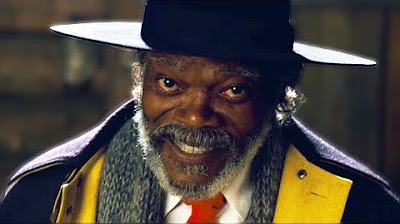How To Think like Hans Landa From Inglourious Basterds @TheVileEye
Summary
TLDRThis video analyzes Hans Landa, one of cinema's most notorious villains from 'Inglourious Basterds.' Landa, an SS colonel, conducts a tense interrogation of a French farmer suspected of hiding Jews. The video explores Landa's manipulation tactics, including establishing rapport, using politeness, reading body language, and controlling conversations through linguistic shifts. By gradually breaking down the farmer's defenses, Landa demonstrates his skill in psychological manipulation and power dynamics. The analysis highlights lessons in communication strategies and how they can be applied or avoided in real-life situations.
Takeaways
- 🕵️♂️ **Investigative Preparation**: Hans Landa prepares thoroughly before encounters, knowing who he is dealing with.
- 🤝 **Rapport Building**: He uses ingratiation and warmth to build rapport, contrasting the brutal image of the SS officer.
- 👥 **Respect and Politeness**: Landa shows respect by using formal language and politeness to disarm his subjects.
- 🍷 **Reciprocity Principle**: He understands the principle of reciprocity, offering something to create a sense of obligation to return the favor.
- 👀 **Observation Skills**: Landa carefully observes body language and behavior to detect signs of deception or discomfort.
- 🗣️ **Language Usage**: He uses language to establish authority, build rapport, and control the conversation.
- 🔍 **Baseline Establishment**: Landa establishes a baseline of behavior to identify changes that may indicate deception.
- 🐀 **Animal Analogy**: He uses animal analogies to justify his actions and create an 'us versus them' dynamic.
- 🕊️ **Futility Approach**: Landa employs a futility approach to break down his subject's morale without direct threats.
- 💡 **Cognitive Overload**: He leverages cognitive overload by switching languages to make it harder for subjects to maintain deception.
- 🤔 **Silence as Pressure**: Landa uses silence as a tool to create pressure and gather information.
Q & A
What is the significance of Hans Landa asking if this is the property of Perrier LaPadite, despite already knowing the answer?
-Landa asks if the property belongs to Perrier LaPadite to create an illusion of uncertainty and to mask his prior knowledge. This approach allows him to appear non-threatening while setting up a psychological advantage.
Why does Hans Landa extend his hand for a handshake, and how does this gesture affect the situation?
-Landa extends his hand to signal that he is unarmed and non-threatening, giving the farmer time to reciprocate. This disarms the farmer emotionally, building rapport while contrasting himself with the stereotypical brutal image of an SS officer.
How does Hans Landa use language to build rapport with Perrier LaPadite?
-Landa uses formal French pronouns, such as 'vous,' to show respect and politeness. He switches between French and English strategically to make it harder for LaPadite to deceive him, using language as a subtle way to gain control over the conversation.
What is the principle of reciprocity, and how does Landa apply it during the interrogation?
-The principle of reciprocity suggests that when someone gives something, the other person feels a need to return the favor. Landa accepts the farmer's offer of refreshment but chooses to drink milk instead of wine, maintaining control over the interaction.
Why does Landa compliment both the daughters and the cows, and what effect does this have on the farmer?
-Landa's compliments on the daughters and the cows serve to subtly remind the farmer of what he could lose, planting the seed of fear by emphasizing the farmer's attachment to his family and livelihood.
How does Hans Landa's switching between French and English benefit him during the interrogation?
-By switching to English, Landa puts cognitive pressure on LaPadite, as speaking in a non-native language makes it harder for him to maintain deception. Landa also suspects that the Jewish family hiding nearby only speaks French, further complicating any potential communication between them and LaPadite.
What is the significance of Landa's animal analogy involving rats and hawks?
-Landa uses the analogy to dehumanize Jews by comparing them to rats while framing himself as a superior predator, like a hawk. This plays on existing prejudices and justifies his actions, making the analogy easy for LaPadite to understand and relate to.
How does Landa use body language and mirroring techniques during his interaction with LaPadite?
-Landa mirrors LaPadite's body language to create a sense of alignment and rapport. This technique helps Landa make LaPadite feel like they are on the same side, subtly lowering LaPadite’s defenses.
What is the 'futility approach,' and how does Landa use it to manipulate LaPadite?
-The futility approach involves making the target feel as though resistance is pointless. Landa implies that he already knows the truth about the hidden Jewish family and slowly breaks down LaPadite's defenses by making him feel that hiding the truth is futile.
What is the final tactic Hans Landa uses to extract a confession from Perrier LaPadite?
-Landa uses silence as a powerful tool to create pressure. After asking direct questions about sheltering the Jewish family, he stays silent, allowing LaPadite to feel the weight of the situation. The uncomfortable silence drives LaPadite to confess.
Outlines

此内容仅限付费用户访问。 请升级后访问。
立即升级Mindmap

此内容仅限付费用户访问。 请升级后访问。
立即升级Keywords

此内容仅限付费用户访问。 请升级后访问。
立即升级Highlights

此内容仅限付费用户访问。 请升级后访问。
立即升级Transcripts

此内容仅限付费用户访问。 请升级后访问。
立即升级5.0 / 5 (0 votes)






